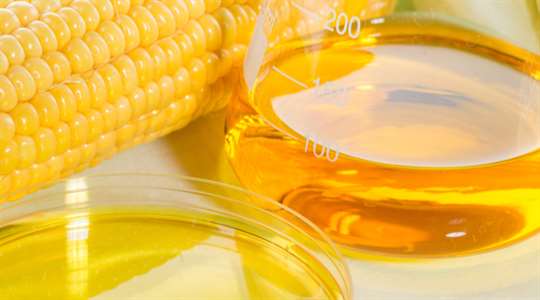
Just because a name sounds a little more warm and fuzzy doesn’t mean it is any better for you.
Recent petitioners of the FDA would love the chance to disagree with you, though.
It was recently announced through various media outlets that The Corn Refiners Association is rigorously pursuing to get the FDA to change the name of high fructose corn syrup to corn sugar.
Probably one word that best sums up this effort is: Huh?
History has taught us that just because you change your name, it doesn’t mean your product is any healthier. Remember when a certain big tobacco company decided to change their name to a less threatening, more fuzzy-sounding brand? Don’t be fooled, because this is exactly the same thing.
Right now, the campaign to change the name of high fructose corn syrup to corn sugar is fully underway, with commercials popping up on TV, and press releases fueling some of the nation's most popular news outlets.
This may sound like a sweet surprise, but it is anything but. Whether it is called high fructose corn syrup or corn sugar, the health costs are still one in the same thing.
It really doesn’t matter what you call it because high consumption of corn syrup or corn sugar can still be detrimental to your health.
Although there is evidence out there to support the fact that corn sugar is different, the effects that sugar can have on your short-term and long-term health are still the same. It doesn’t matter what you want to call it, as long as you understand that the more sugar you consume, the more likely you are to increase your chances of diabetes, and hypertension.
Consuming foods and beverages that contain high amounts of fructose, or corn sugar, is bad if you do it in large amounts. Several studies indicate that consumption of a high fructose drink for breakfast increased liver-mediated fat storage after lunch. With this storage of excess fat, it becomes more difficult for your metabolism to break this excess fat down into reusable energy, which is what most people fail to understand.
With intense work weeks, and stress eating away at many of us, we tend to look for quick solutions that can give us the most amount of energy, with the least amount of effort. Soda and high-energy based drinks are more popular than ever, and most of them give us the delightful joy of feeling more awake and more energized. This relief is great for the moment, but it isn’t good for your overall health. Study after study has shown that weight gain is more prominent in subjects that consumed liquid beverages sweetened with high fructose corn syrup, more so than eating foods that have been sweetened by the substance.
In many of the advertisements you see for the new corn sugar campaign, the content of juice comes into question, and one mother argues that the hype over high fructose corn syrup is really something we shouldn’t worry about keeping away from our kids.
Although both fructose and sucrose may be indistinguishable in our bloodstream, it still doesn’t mean that we won’t experience different effects. Studies have shown that liquids specifically sweetened with high fructose corn syrup over non-caloric sweeteners are associated with higher retention of excess body weight.
These studies also prove claims by nutritionists that high-fructose drinks speed up your body’s process of fat synthesis. The studies show that the human body can make fat from fructose at a very quick pace, which contributes to an increase in weight gain. It’s very difficult to slow this process down, and it becomes even more difficult once you get on a regular routine of consuming overly-sweet beverages.
Even though a name change may sound more appealing sometime, the fact of the matter is that high fructose corn syrup can still be bad for you, even if its physical “namesake” has been changed to sound better.
How can you avoid this unhealthy blunder? Stick to a diet that is properly-balanced with healthy nutrition and satisfying portions. At snack time, reach for healthier alternatives that are naturally sweet, like fresh strawberries and juicy grapes.
High fructose corn syrup may sound better now, but always keep one thing in mind: it’s still sugar, and too much of it can spell trouble in the long run.







